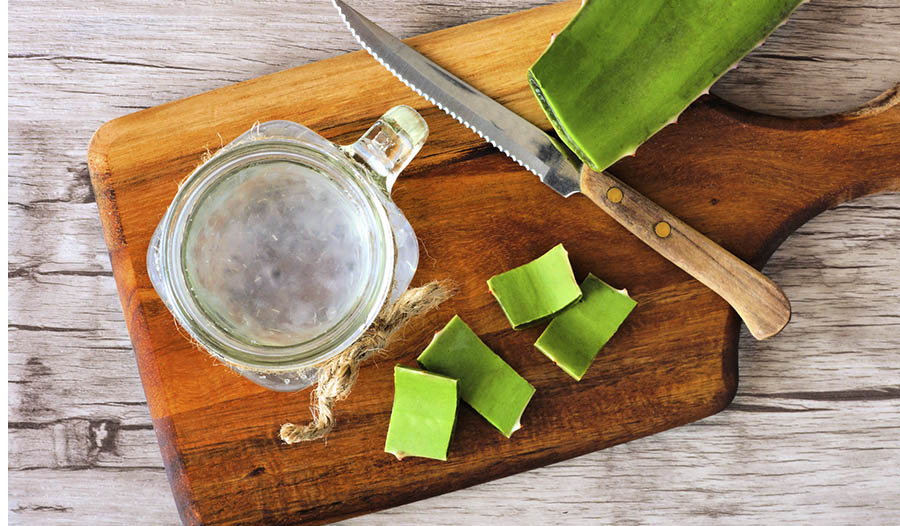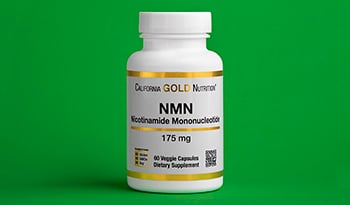The Health Benefits of Aloe Vera

Aloe vera is a prickly succulent plant that has been popular for its medicinal uses in a variety of cultures for thousands of years. Named Aloe barbadensis in scientific literature, its short stem and thick, spiky, green leaves make it easily recognizable.
There are two main parts of the aloe vera plant that are extracted for their beneficial properties. The first is the translucent gel inside the leaves, which is 96% water. The gel also contains vitamins A, B, C and E, a protein comprised of 18 essential amino acids, and other organic and inorganic compounds. The other useful substance in the plant is the sap, which is also called aloe latex. This sticky yellow residue is found just under the outer part of the plant leaf. Aloe gel is ingested or applied topically. Aloe latex is taken orally, usually to manage constipation.
While aloe vera is best known for having healing effects on the skin, the list of potential health benefits is long. There are several benefits supported by research:
Antioxidant and Antibacterial Properties
Aloe gel contains polyphenols, which are powerful antioxidants. They can help prevent the growth of certain bacteria that can cause infections in humans. Because of its antioxidant activity, aloe gel can improve inflammation as well.
Studies have shown that applying aloe gel twice per day for eight weeks might help reduce symptoms of oral lichen planus, an inflammatory condition that affects the inside of the mouth.
Speeds the Healing of Burns
Back in 1959, the United States Food and Drug Administration approved aloe vera as an over-the-counter medication for skin burns. It is also highlighted as a burn treatment in the World Health Organization’s monograph of medicinal plants. Studies have shown topical treatment to be effective for first- and second-degree burns. It is recommended to apply a pure aloe vera gel to the affected area three times daily.
Reduces Dental Plaque
There are multiple studies comparing the effectiveness of aloe vera juice to the standard mouthwash ingredient chlorhexidine. When used as a mouth rinse, research results show a significant reduction of plaque and gingivitis with the use of aloe vera and no significant difference compared to chlorhexidine.
Helps Treat Canker Sores
Study results support the topical use of aloe gel to decrease the healing time of recurrent aphthous stomatitis, commonly known as canker sores. There is also evidence that pain associated with the sores also improves.
Lowers Blood Sugar Levels
More research is needed. However, early studies suggest that aloe vera may help with blood sugar management, reducing blood sugar levels in diabetic and prediabetic patients.
Improves Skin Appearance
Aloe gel with its antioxidant properties can have a calming effect on the skin, reducing itchiness and inflammation.
It has been used in mild to moderate psoriasis to reduce redness, scaling, and itching. You may need to use it topically several times per day for a month or more to see a noticeable improvement.
In treating acne, research studies have shown aloe gel to be beneficial. A twice-daily aloe gel application combined with the use of the topical prescription acne medicine tretinoin could help reduce acne more effectively than using a topical prescription alone.
Additionally, clinical trials have shown the efficacy of aloe vera gel to treat genital herpes and seborrheic dermatitis.
Reduces Constipation
Aloe latex contains aloin, which is the compound that gives aloe vera its laxative properties. A common dose is 50-200 milligrams of aloe latex or juice.
Some concerns have been raised about safety issues with frequent use. It should not be taken for more than 10 days. Adverse effects may include abdominal cramping and diarrhea. There is also evidence that in high doses, it can cause kidney damage.
Aloe Vera Safety
Topical use of aloe vera is generally considered safe. Regarding oral use, there are some caveats:
- Because it’s a laxative, aloe latex may reduce absorption in the digestive tract resulting in decreased effectiveness of some drugs that are taken orally.
- Since aloe can reduce blood sugar levels, diabetics who take glucose-lowering medications should proceed with caution when using oral aloe vera.
- While rat studies have shown some carcinogenic activity, primarily with the substance aloin in aloe latex, further research is needed to support potential risk to humans.
DISCLAIMER:This Wellness Hub does not intend to provide diagnosis...
















































































 Table of Contents
Table of Contents















